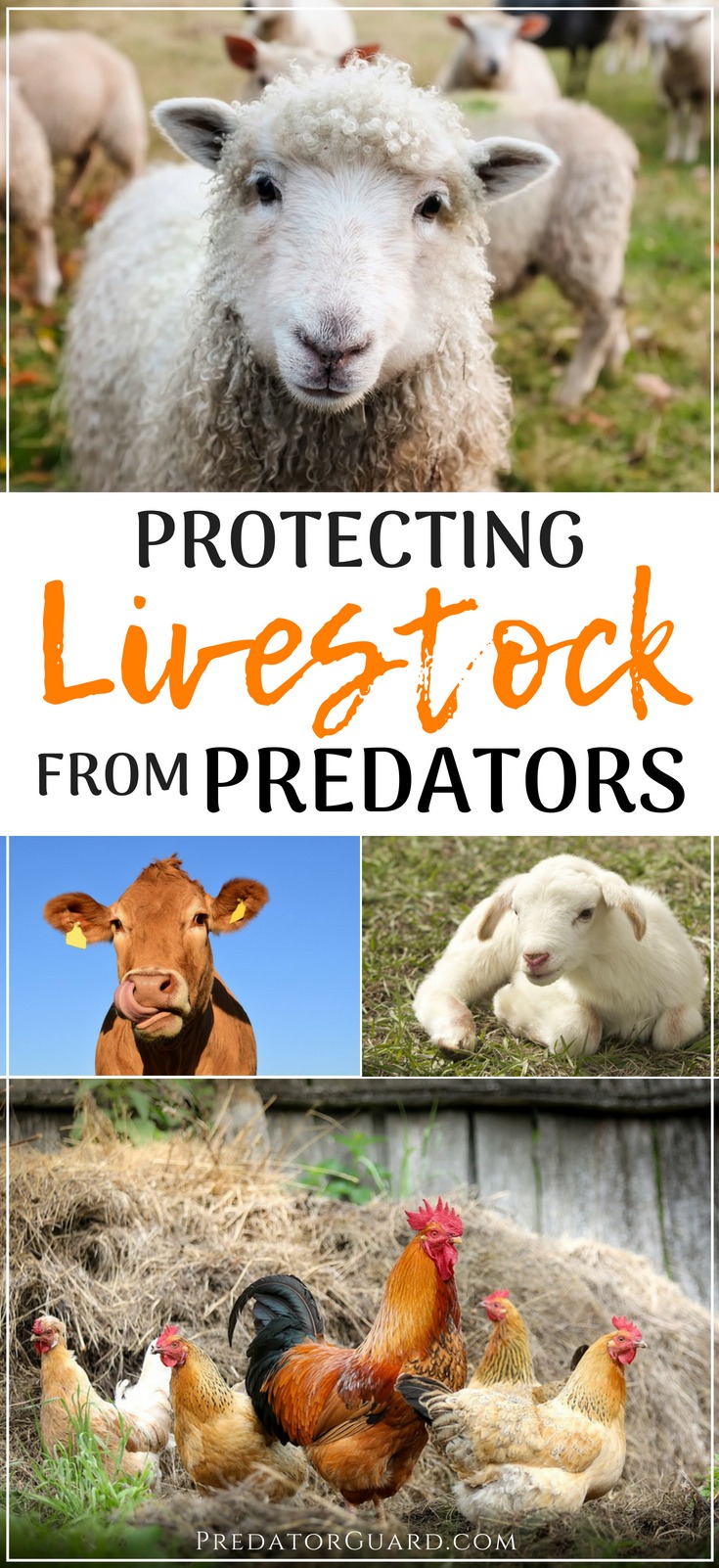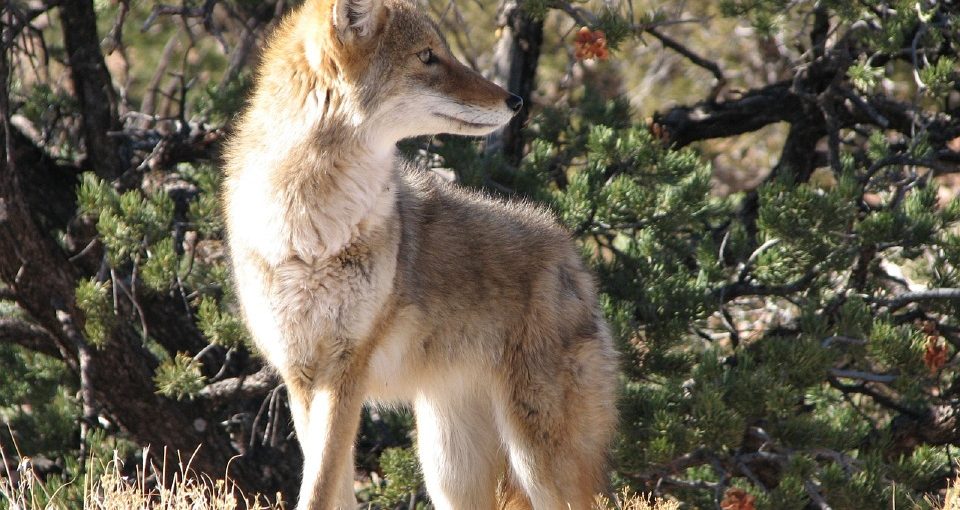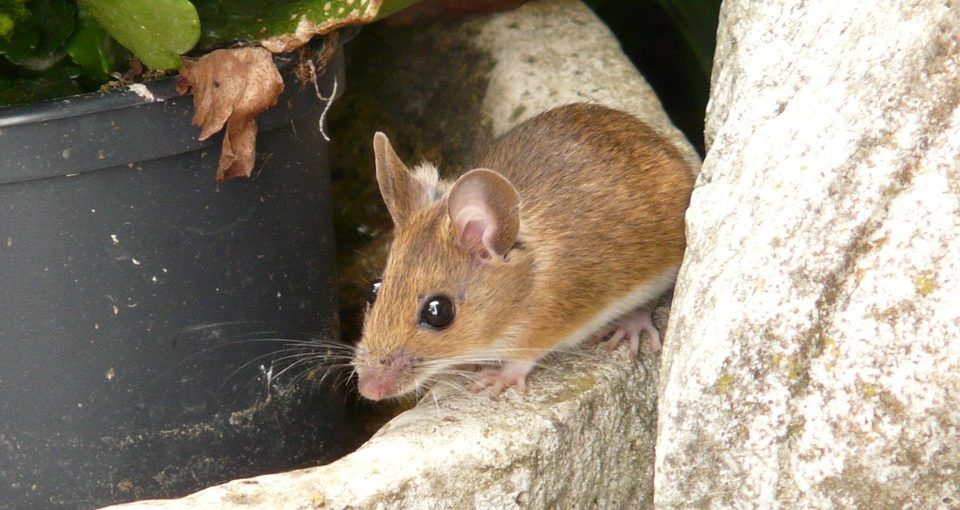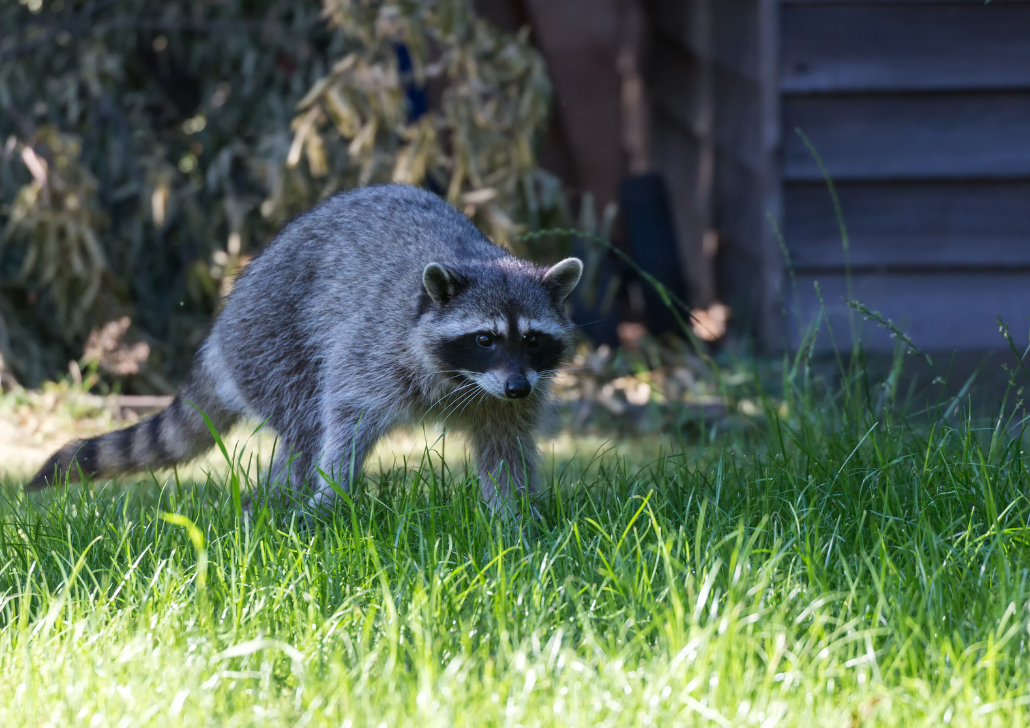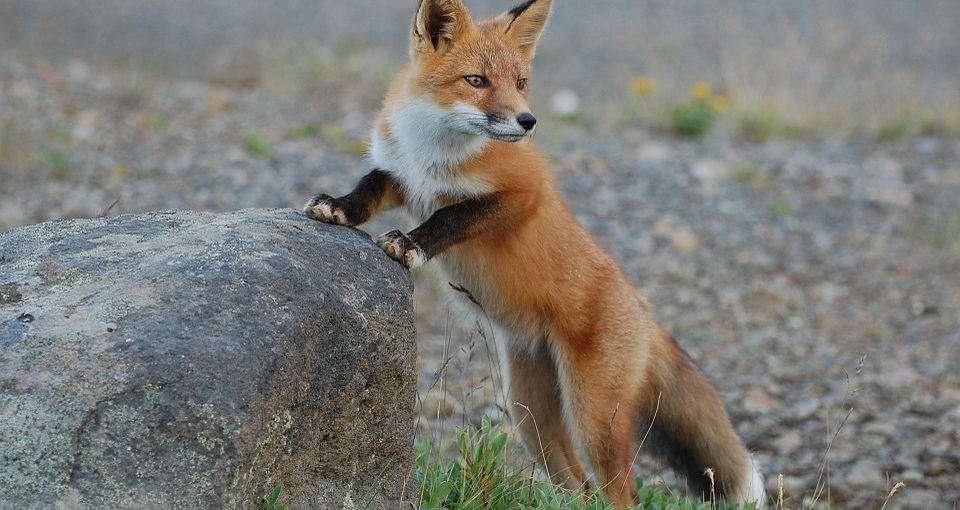Protecting livestock from predators such as coyotes, wolves, and hawks is a major concern for many homesteaders and farmers. Learn what you can do to keep your livestock safe from wild animal attacks.
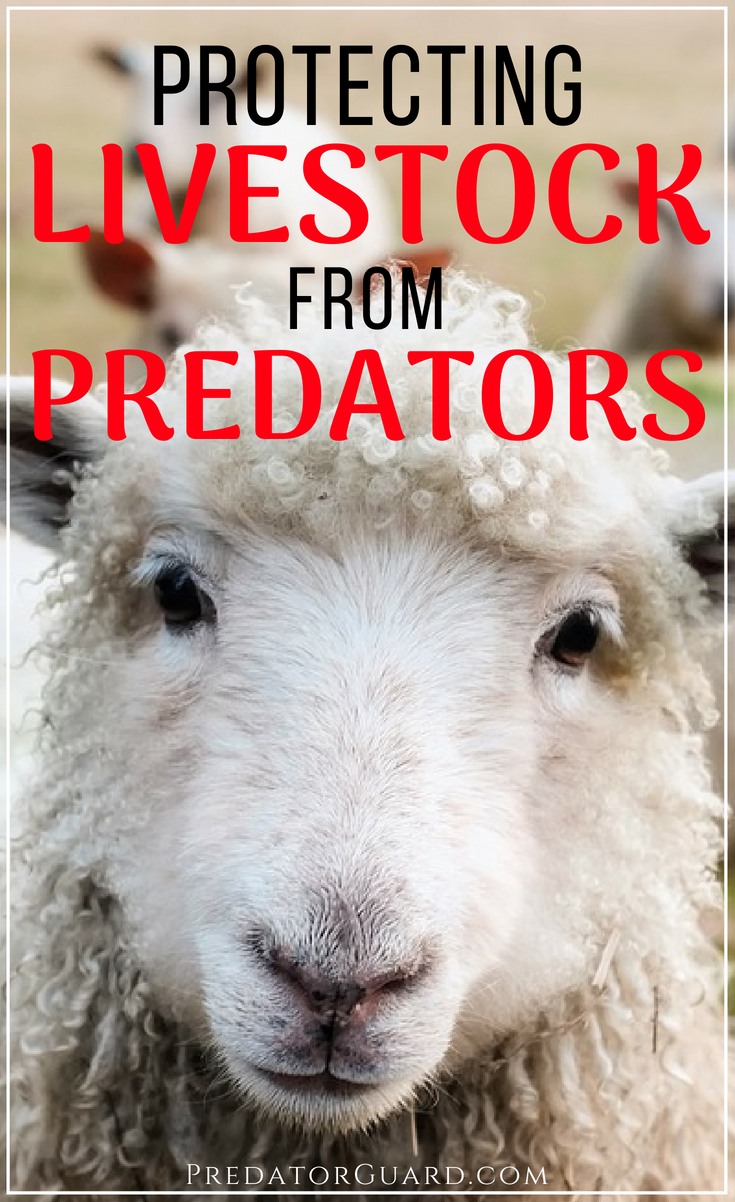
If you have livestock, chances are you've encountered predators attempting (and sometimes succeeding) to make a move on your property. It's an unfortunate fact of life, but thankfully there are several things you can do to deter predators from harming your animals.
Every predatory attack is unique, and every property has to implement different techniques in order to see results.
The main thing to keep in mind here is that predators will typically go for the easy kill. If they're hungry or desperate, they'll go to extreme measures in order to eat. Alternatively, if there is abundant wildlife in your area, attacks might not be very common, especially if you have proper fencing in place.
Some may have to set up extensive fencing and predator deterrents, while others simply have to lock their animals up at night. The steps you will need to take to protect your livestock depends heavily upon your specific situation.
Protecting Livestock From Predators
Identify The PredatorsThe first thing to do when you face a predatory incident (or you suspect an impending attack) is to identify which predators you're dealing with.
Different predators require different preventative measures. For example, our LED Deterrent Lights work for nocturnal predators, and will have no effect on preventing daytime attacks.
Identifying the predator allows you to make an actionable plan that will effectively protect your livestock based on your specific situation.
Raise Healthy, Happy Animals
Of course we all want to raise healthy, happy animals because it's the right thing to do, but it's important in more ways than one. Because predatory animals are opportunistic by nature, they tend to go after whatever meal is the easiest to obtain.
This means they will not hesitate to pick off any weak, sick, young, or old animals on your property.
Keeping your livestock healthy and strong does not cut out predatory attacks completely, but it certainly does help.
Take Extra Measures For Vulnerable Animals
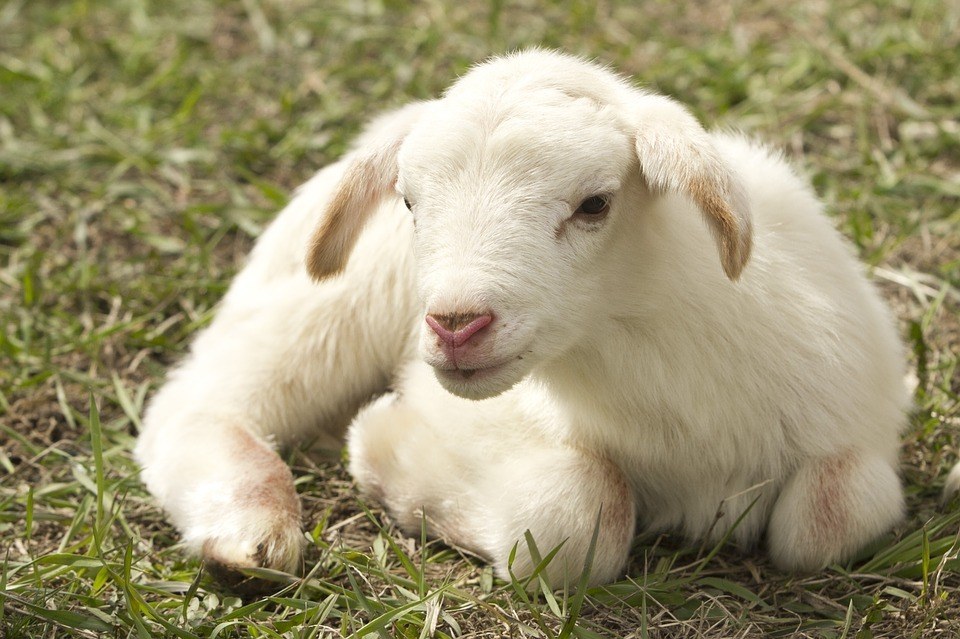
Sick livestock should always be separated from the rest of your animals. It is important to give them time to recover in a safe space where they're not subjected to the harsh elements and predators.
The same applies to animals in labor, as well as livestock that have recently given birth. The closer you keep these animals to your home, and the most sheltered they are, the better. You don't want to draw any attention to your property.
Proper Fencing Is Key
As always, having proper fencing in place is one of the best ways to protect your livestock. Unfortunately, many predators such as mountain lions, foxes and bears are more than capable of jumping over fences to reach your animals.
For example, when protecting livestock from mountain lions, a 12 foot fence with an overhang to deter climbing may be necessary. When dealing with foxes, coyotes, or other predators that like to dig, a skirt or apron may be needed.
Guardian Animals
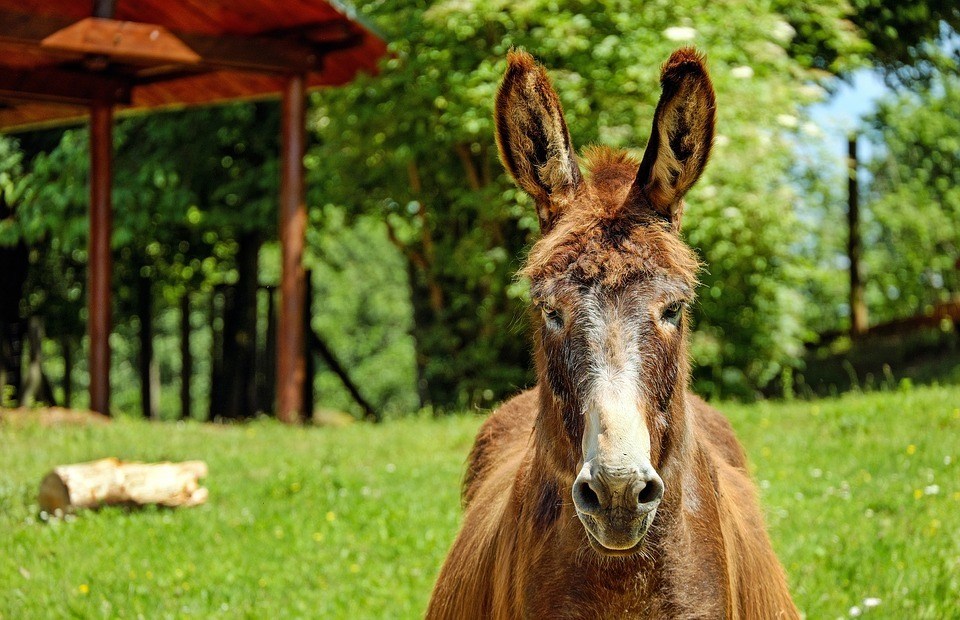
Farmers have been using guardian animals for thousands of years, and the practice is still in place today. Most predator attacks happen late at night, and because of this you might consider adding some guardian animals to your property. They're on duty 24/7.
It's rare that guardian animals will kill predators. Typically their behavior is enough to keep the predators away completely. If you've ever heard a donkey yell at you unexpectedly during the night, you'll understand. Some guardian animals you might consider adding to your property:
- Donkeys
- Dogs
- Alpacas
- Llamas
Install Predator Guard Products
Our innovative products are designed to assist homesteaders, ranchers, farmers, and gardeners protect their valuable assets from wild animal predation.
We highly value wildlife, and strive to provide a means to co-exist with the native wild animals near you by providing humane, non-lethal alternatives to traditional predator control techniques.
Predator Guard LED Deterrent Lights
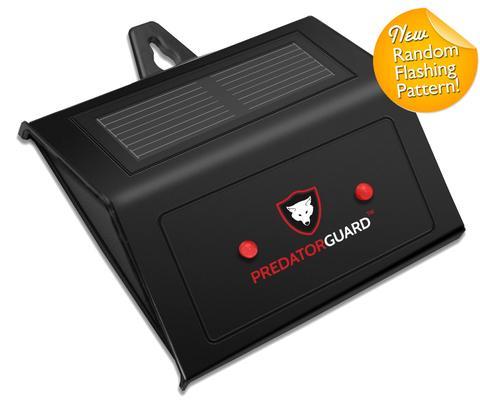
Our solar powered LED deterrent lights triggers the flight response in a variety of predators, from owls and hawks to coyotes and raccoons. When approaching the area, the predator will mistake the two glowing lights for eyes, effectively scaring them away. It's available on our website, as well as on Amazon Prime.
Predator Guard Scare Tape
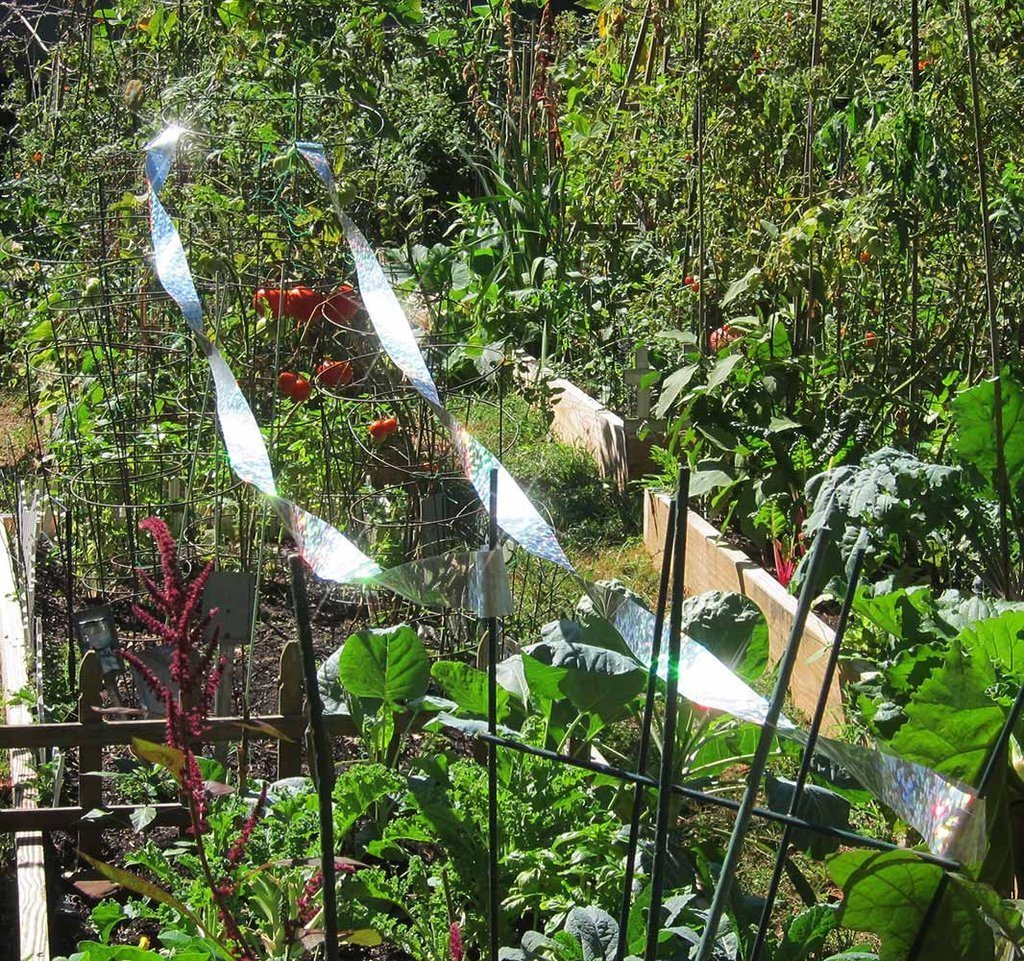
While our LED Deterrent Lights are great for protecting livestock at night, our Reflective Scare Tape is more suitable for deterring daytime predators.
The ultra reflective material shimmers and shines in the sunlight, as well as making a metallic noise when the wind blows. This effectively scares away birds and other daytime pests and predator animals. If hawks are circling your chickens or other small animals, this would be a wonderful solution for you.
Our Reflective Scare Tape is also available on our website, as well as on Amazon Prime.
Multi-Species Grazing
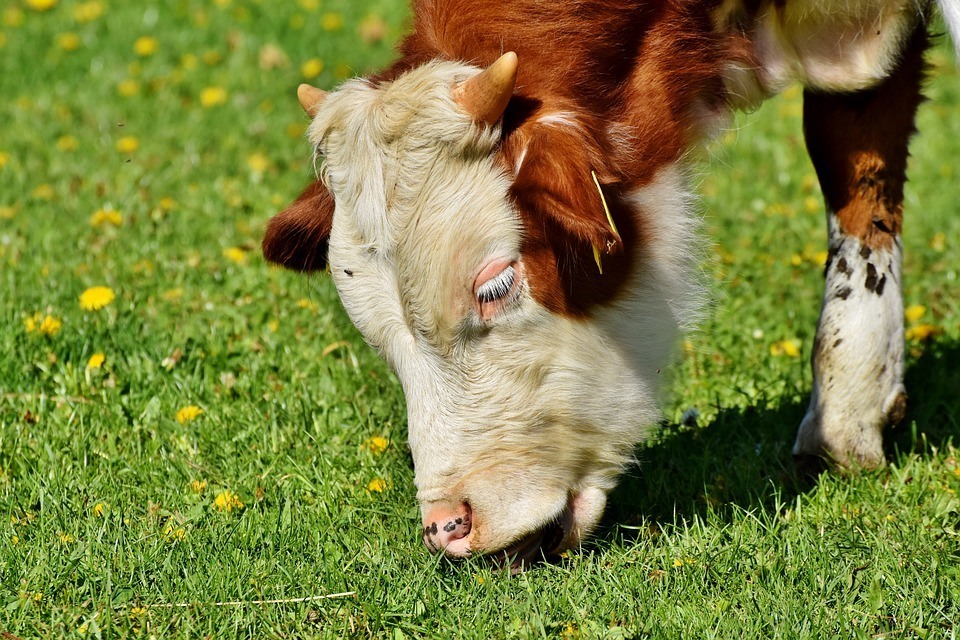
Letting different species graze together can reduce the risk of predatory attacks, and it can actually be more cost effective as well. Smaller livestock such as goats are more vulnerable to attacks than cattle, so letting them graze together can keep the goats safe.
Understanding The Predator's Behavioral Patterns
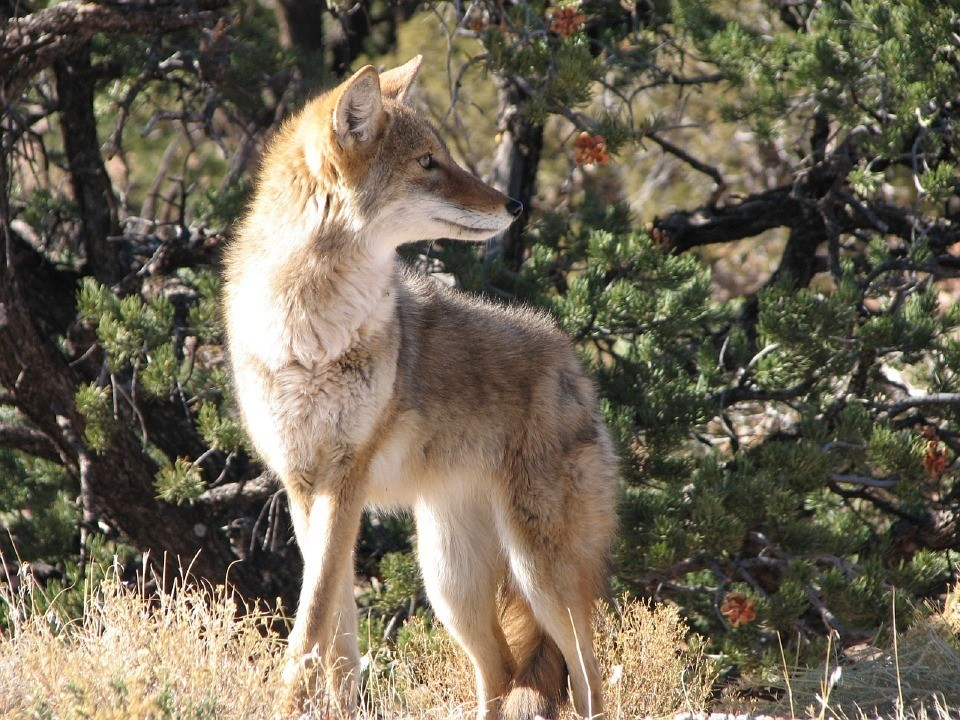
Having a solid understanding of predator's behavioral patterns is important for protecting livestock from predators. It can ensure that you're prepared before attacks even occur.
For example, while coyote attacks may happen at any time of year, they happen more frequently in April, May, and June, when they're trying to feed their pups. Taking extra measures during this time is smart, such as setting up more deterrents and repellents. It might also be in your best interest to adjust your breeding schedule so new babies are not born during this time frame.
Cycling Through Different Techniques
As with any other form of predator or pest control, it's best to cycle through different techniques. Animals are savvy, and will pick up on your gimmicks fairly quickly.
Using different methods for protecting livestock from predators is the best practice. Use our deterrent lights for a few days, then try adding a radio or other noise machine for a night or two. Keep things fresh and new and most of the time you'll be able to outwit the predators.
What predator animals are a concern on your property? What techniques work
for you? Let us know in the comments.
for you? Let us know in the comments.
If You Liked This Post, Don't Forget To Pin it For Later:
